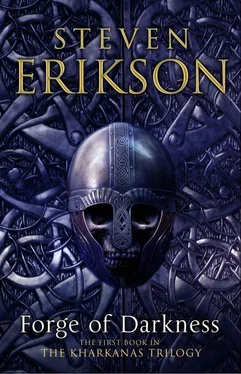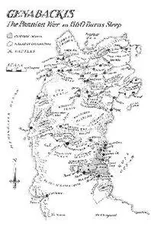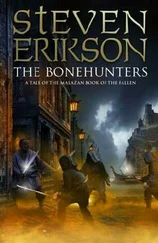Steven Erikson - Forge of Darkness
Здесь есть возможность читать онлайн «Steven Erikson - Forge of Darkness» весь текст электронной книги совершенно бесплатно (целиком полную версию без сокращений). В некоторых случаях можно слушать аудио, скачать через торрент в формате fb2 и присутствует краткое содержание. Жанр: Фэнтези, на английском языке. Описание произведения, (предисловие) а так же отзывы посетителей доступны на портале библиотеки ЛибКат.
- Название:Forge of Darkness
- Автор:
- Жанр:
- Год:неизвестен
- ISBN:нет данных
- Рейтинг книги:3 / 5. Голосов: 1
-
Избранное:Добавить в избранное
- Отзывы:
-
Ваша оценка:
- 60
- 1
- 2
- 3
- 4
- 5
Forge of Darkness: краткое содержание, описание и аннотация
Предлагаем к чтению аннотацию, описание, краткое содержание или предисловие (зависит от того, что написал сам автор книги «Forge of Darkness»). Если вы не нашли необходимую информацию о книге — напишите в комментариях, мы постараемся отыскать её.
Forge of Darkness — читать онлайн бесплатно полную книгу (весь текст) целиком
Ниже представлен текст книги, разбитый по страницам. Система сохранения места последней прочитанной страницы, позволяет с удобством читать онлайн бесплатно книгу «Forge of Darkness», без необходимости каждый раз заново искать на чём Вы остановились. Поставьте закладку, и сможете в любой момент перейти на страницу, на которой закончили чтение.
Интервал:
Закладка:
Nerys turned to her daughter. ‘Into the carriage.’
But Sandalath was looking past the carriage, stretching to catch a last glimpse of her son. He was nowhere to be seen.
‘Daughter, obey your mother. Go.’
Holding herself as would someone with diseased lungs — shoulders hunched, caving in round the infection — Sandalath made her way down the stone steps. She had a way of seeming both old and impossibly young, and both states filled Nerys with contempt.
Nerys tilted her head towards the escort. ‘Ivis, we thank you for your courtesy. We know you have ridden far this day.’
Atop the bench at the front of the carriage the coachman was eyeing Lady Nerys, awaiting the signal. In the pale sky behind him a flock of birds winged towards the tree-line.
‘Lady Nerys,’ said Ivis, drawing her attention around, ‘we shall ride through the night and arrive at the house of my lord shortly after dawn.’
‘Excellent. Are you alone in this task?’
He shook his head. ‘A troop awaits us east of Abara, milady. Of course, we respect the traditional possessions of your bloodline, and so would do nothing to displease you.’
‘You are most kind, Ivis. Please convey my compliments to Lord Draconus, for selecting such an honourable captain for this task.’ She then nodded to the coachman, who snapped the traces, startling the horse into motion.
The carriage rumbled forward, bouncing over the uneven cobblestones, swinging on to the track that led round the back of the house. Halfway down the hill it would join the road into Abara, and from there it would take the north track, alongside the river, for a short distance before finding the branch leading northeast.
Drawing her heavy cloak about her shoulders, faintly chilled in the shadow of the entranceway, Nerys watched until the rider and the carriage disappeared round the side of the house, and then she looked once more to catch sight of Orfantal. But still he was out of sight.
This pleased her.
Some other battle in the ruins. Another triumphant stand. Another knife in the back.
Children dreamed the silliest dreams.
Standing in the shadow of the burnt-out stables, hidden from the steps of the house, the boy stared after the carriage. He thought he had seen her face, there in the small, smudged window, pale and red-eyed, as she strained to find him, but then the carriage trundled past, turning so that all he could see was its high back and strongbox, the tall wheels leaning and wobbling on old axles. And then, the strange rider in the soldier’s garb rode by, his horse kicking up puffs of dust once past the cobbles.
Soldiers came to Abara. Some had missing limbs or only one eye. Others bore no wounds but died with knives in their chests, as if the weapon had followed them all the way from those distant battles they’d fought in. Darting silver, barely seen in the night, following, finding, at last catching up. To kill the man who’d been meant to die weeks, even months, earlier.
But this soldier, who called himself Ivis, had come to take away his mother.
He didn’t like to see people cry. He’d do anything to keep them from crying, and in his mind, in the imaginary world of strife and heroism that he lived in, he often voiced vows over the tears of a broken woman. And then fought his way across half the world in the name of that vow. Until it killed him, like a knife creeping up from the distant past.
The boy watched the carriage until it was lost from sight. And his mouth then moved, voicing a silent word.
Mother?
There were wars far away, where hate locked weapons and blood sprayed like rain. And there were wars in a single house, or a single room, where love died the death of heroes, and weeping filled the sky. There were wars everywhere. He knew this. There were wars and that’s all there was, and every day he died, taken by that knife that followed him across the whole world, just as it had done to his grandfather.
But for now, he would hide in the shadows, in the stables that had caught fire, killing all but one of the horses. And maybe slink into the wood beyond the corral, to fight ever more battles, losing every time because the real heroes always did, didn’t they? Death always caught up, to everyone. And the day would rush past, as it always did.
Until the call came from the kitchen, ending the world for another night.
Sandalath thought she had seen him, there in the gloom, ghostly against one of the last still-standing walls of the burnt-out stable, but probably had only imagined it. The footing of her mind was uncertain, or so her mother always said; and imagination, such as she’d bequeathed to her son, in abundance, was no virtue in these stressful times. The air inside the carriage was stifling, smelling of mould, but the hinges on the side windows had seized with rust and grime, and the only draught to reach her came from the speak-box leading up to a tube of wood that rose beside the bench where sat the coachman. She barely knew him — he had been hired from the village for this one task — and should she call up to him, to beg his help opening a window, well, that tale would soon fill the taverns — the fallen House and its cursed, useless family. There would be laughter, mockery and contempt. No, she would not ask anything of him.
Sweat trickled beneath her heavy clothes. She sat as still as she could manage, hoping that would help, but there was nothing to do, nothing to occupy her hands, her mind. Too much rocking and jostling to resume her embroidery; besides, dust was already drifting in, sliced bright by thin spears of sunlight. She could feel it coating her face, and had there been tears on her cheeks — which she knew there were supposed to be — then the streaks would darken with dirt. Unsightly, shameful.
She remembered her first time as a hostage; she remembered her time in the Citadel, the breathless excitement of all those people moving through countless sumptuous rooms, the tall highborn warriors who never seemed to mind the tiny girl underfoot. She remembered the wealth — so much wealth — and she had come to believe that this was her world, the one to which she had been born.
She had been given a room, up a winding flight of stairs; there she would often sit waiting, flushed and excited, for the high bell announcing meals, when she’d rush down, round and round those ever-turning steps, to lunge into the dining room — and they would laugh in delight upon seeing her.
For most of that first year it seemed that she had been the centre of attention in the entire Citadel, feted like a young queen, and always nearby were the three warrior sons of Lord Nimander, to take her hand whenever she reached up, whenever she needed to feel safe. She remembered her fascination with Silchas Ruin’s white hair, the glint of red in his eyes, and his long fingers; and the warmth of Andarist’s smile — Andarist, whom she dreamed she would one day marry. Yet the one she truly worshipped was Anomander. He seemed solid as stone, sun-warmed and smoothed by winds and rain. She felt him like a vast wing, protective, curled round her, and she saw how the others deferred to him, even his brothers. Anomander: most beloved by Mother Dark, and most beloved by the child hostage in the Citadel.
The wars stole them away from her, father and sons all, and when Lord Nimander returned early on, crippled and broken, Sandalath had huddled in her room, frozen with terror at the thought of any of her guardians dying on some distant field of battle. They had become the walls of her own house, her own palace, and she was their queen, for ever and always. How could such things ever end?
Outside the carriage window the single-storey buildings of the village rolled past, and before them fleeting figures moved here and there, many stopping to stare. She heard a few muted calls flung up to the driver, heard a muffled bark of laughter, a drunken shout. Breath catching suddenly, Sandalath leaned back to keep her face from the dust-streaked window. She waited for her heart to slow. The carriage bounced across deep ruts, pitching her from side to side. She folded her hands together, gripping hard, watching the blood leave her knuckles until she could see the bones.
Читать дальшеИнтервал:
Закладка:
Похожие книги на «Forge of Darkness»
Представляем Вашему вниманию похожие книги на «Forge of Darkness» списком для выбора. Мы отобрали схожую по названию и смыслу литературу в надежде предоставить читателям больше вариантов отыскать новые, интересные, ещё непрочитанные произведения.
Обсуждение, отзывы о книге «Forge of Darkness» и просто собственные мнения читателей. Оставьте ваши комментарии, напишите, что Вы думаете о произведении, его смысле или главных героях. Укажите что конкретно понравилось, а что нет, и почему Вы так считаете.












